A good caddy is key to success for every professional. But how do you find a good caddy? And how are roles between the caddy and the player set up? David Carter, for example, claims that it is not good when the relationship is too personal. According to him, it is important to maintain distance from the caddy and retain the position of chief. A relationship between Phil Mickelson and his caddy, Jim “Bones” Mackay, is, according to him, exceptional.
“It isn’t good to spend too much time with your caddy. To maintain a healthy relationship it is necessary to separate work and leisure time,” says the English professional. “When you don’t spend every moment together there is always something to talk about. For instance, you can talk about what you watched on TV yesterday. This is something you’ll always appreciate, especially in the last round of a tournament, when you are in the lead. There is nothing worse than silence at such a moment – when there is nothing to talk about.”
Therefore, David Carter used to set certain boundaries with every caddy, which did not change in the course of cooperation and no matter how many seasons they spent together. “I was with one caddy for six or seven years. It’s nice to have a stable caddy, but each player is different. There are pros who look for someone new every few months,” smiles David Carter.
According to Carter, the relationship between Phil Mickelson and “his” Bones, is exceptional. “They’re together for such a long time that they’re absolutely connected. They know each other, and even their families know each other. They are close friends. It works between them differently than what I was used to. But why not, if it suits the players, it isn’t a problem,” David Carter says nodding his head.
There are other players who had and still have a very close relationship with their caddies, such as Jim Furyk and Mike “Fluff” Cowan or Colin Montgomerie and Alister McLean. Steve Williams also spent a lot of years alongside Tiger Woods. On the contrary, Seve Ballesteros or Miguel Ángel Jiménez changed their caddies quite frequently.
Experiences to spare
David Carter likes to remember the times when his caddy was Pete Coleman. This cooperation lasted a year and a half. Pete Coleman used to carry a bag for such big names, like Bernhard Langer or Ballesteros. “He was more expensive than other caddies, but it was worth every penny. It was great working with him. He’d tell me stories that he experienced with Langer or Seve; I drew from his amazing experience. He won over fifty tournaments in the position of a caddy and this is a huge number,” says David Carter.
You always have to “queue” on the tour if you want to get a good caddy. Players are very familiar with caddies, they know how they work, what they can do, talk about them and share their experiences. “It’s like with the top football players. Fans also know very well that Rooney, Ronaldo, Xavi or Messie are great. Also the first-class caddies are well known. It’s a rule that top players have top caddies,” says David Carter.
Therefore, he did not wait a second when he found out that Coleman was free. Immediately he picked up the phone and offered him a job. Coleman accepted the offer and the very next week they met. Carter says that an experienced caddy is a treasure. “Young, inexperienced caddies are enthusiastic, full of energy, go ahead into everything. Older guys, on the other hand, are cool and calm, nothing upsets them and they have a lot of experience in big tournaments. Then when you are about to win the tournament, they know exactly what to do, how to calm the players down,” he says.
Greg Norman’s story
The caddy should always do what suits the players. David Carter remembers Greg Norman, who had to play without the usual caddy on the tournament in England. He chose another one and said to him: “You’ll carry the bag and provide distances. I’ll pick my clubs and read the putts. I want you to be in the locker room an hour before the first tee off. That’s all, I don’t need anything else.”
Then, when Norman won, he thanked his caddy for the excellent work. He said it was nothing since he mostly just carried the bag. But Norman opposed: “It was a really great job. You did exactly what I asked you for.”
It is sometimes a problem. Some caddies feel that they have to do everything in their power for the players. They perceive it as their duty. “But a good caddy does just what the player asks him for. The caddie asks what to do, where to be, what is expected from him. All this is decided by the player. Therefore, the golfer in this pair is the boss and everything must be done as he requires,” emphasises David Carter.
Finally, he adds that the worst thing that can happen to players on tournaments is when they cannot find their caddies. “There is no greater stress than when – before the start of the round – you run around looking for your caddy everywhere. You have to ask the other caddies and players if they’ve spotted him somewhere and he’s just nowhere to be found,” laughs the English pro.

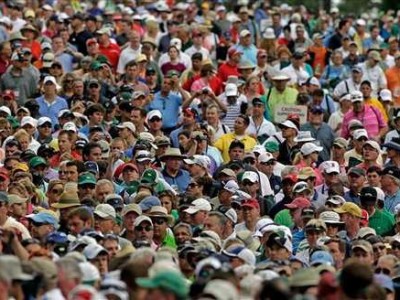

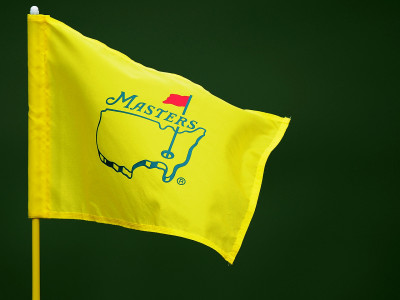
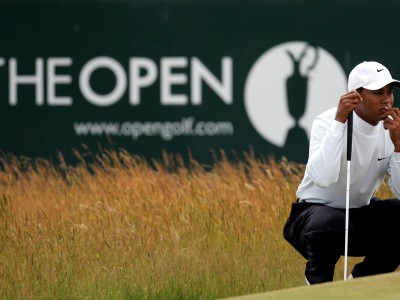


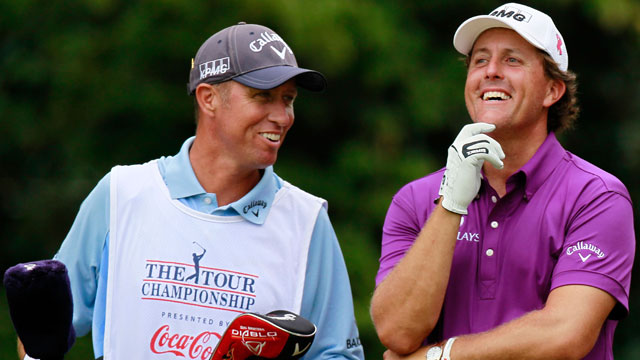

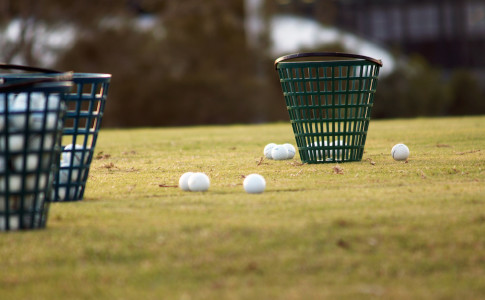
No comments